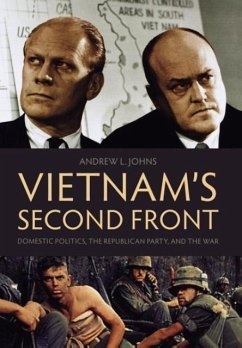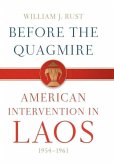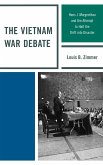The Vietnam War was fought on two fronts: in the jungles and rice paddies of Southeast Asia and on the political battlefields of the United States. Ultimately, the administrations of John F. Kennedy, Lyndon Johnson, and Richard Nixon failed to achieve victory on either front, but why? The answer lies in an overlooked factor in American history: the role of domestic political considerations in the creation and implementation of U.S. foreign policy and the influence of foreign relations on the American political process. In Vietnam's Second Front: Domestic Politics, the Republican Party, and the War, Andrew L. Johns examines the relationship between foreign policy and domestic politics during America's longest war, assessing the influence of the Republican Party -- including the congressional leadership, state and local politicians, grassroots organizations, and the Nixon administration -- on the escalation, evolution, and resolution of the conflict. This groundbreaking work also sheds new light on the institutional tensions that existed between Congress and the president as they struggled to formulate and implement U.S. foreign policy. Beginning his analysis in 1961 and continuing through the Paris Peace Accords of 1973, Johns argues that the Kennedy, Johnson, and Nixon administrations failed to achieve military and political victory in Vietnam because of their preoccupation with domestic politics. Johns details the machinations and political dexterity required of all three presidents and of members of Congress to maneuver between the countervailing forces of escalation and negotiation while they grappled with electoral and partisan concerns. He offers a provocative account of the ramifications of domestic political pressure on American foreign policy. He demonstrates the power, consequences, and centrality of this pressure, the constraints -- both real and perceived -- it placed on U.S. presidents and politicians during the Vietnam conflict, and the degree to which it irrevocably altered the course of the war. In clear, incisive prose based on virtually unprecedented research in more than eighty congressional and presidential archives, Vietnam's Second Front covers the broad range of the Republican Party's impact on the Vietnam War, offers a compelling reassessment of responsibility for the conflict, and challenges assumptions about the roles of Congress and the president in U.S. foreign relations.








